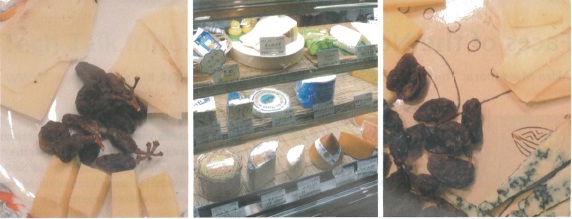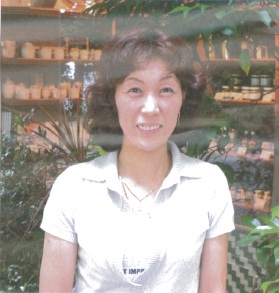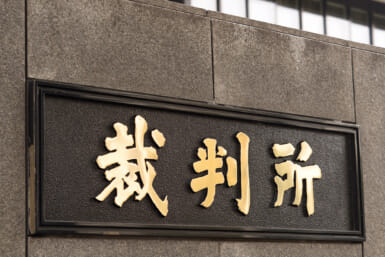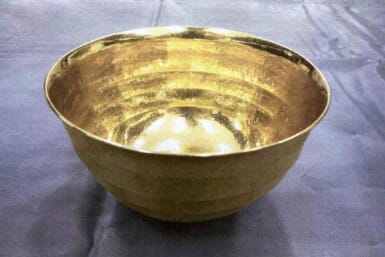Secrets of Tokyo’s hidden stockists
by Suzy Small
There can be little simpler but more rewarding than a nice glass of wine enjoyed with a piece of delicious cheese. Yet, although Tokyo is in many ways a food lover’s paradise, the perfect piece of cheese or a good value bottle of wine can be strangely elusive. When I first arrived in the city my initial glee at discovering a wide range of cheeses at the local supermarket turned to disappointment when I realized that they all tasted… the same. No matter which variety of cheese I bought, it was rubbery and bland, and I swiftly grew tired of the six bottles of wine that the same supermarket stocked.
Luckily, there are options beyond supermarkets and, if you’re prepared to spend the time seeking it out, there is plenty of gooey gorgonzola and piquant cheddar — not to mention rich merlot or crisp sauvignon — available in Tokyo. For cheese, a good starting point is Fermier in Atago (see interview with owner Rumiko Honma, below). International supermarkets like Nissin or National Azabu, and importers such as Yamaya offer a good range of flavorful cheeses as well, mostly imported from Europe. For a discount option, Kaldi is worth a visit. This chain is billed as a coffee farm, but in reality stocks everything from Italian canned tomatoes to amazing Australian cheddar, all at knockdown prices.
Having sorted out some cheese, it’s time for a bottle of wine. While many stores stock wine, it can take more effort to seek out something special, or to find a really good value. One company that aims to fill this gap in the market is NEWZEE, which offers premium wine from New Zealand. Its bilingual website offers helpful tasting notes for each variety, and bottles are available in individual boxes or by the half dozen. Another web-based retailer, Alcotrade, is also worth a look; they offer a range of wines from around the world and have overnight delivery to many parts of Japan. If you prefer to browse in person, Les Caves Taillevant in Marunouchi is like a treasure chest. It stocks a huge range of imported wines at very reasonable prices, despite the glamorous surroundings. After finding the right bottle, you can enjoy it in the adjacent bar with a cheese plate or some tapas, and contemplate the fact that perhaps Tokyo isn’t such a bad place for cheese and wine after all.
Fermier — www.fermier.jp
Atago 1-5-3. Open 1 lam-7pm. Closed Sundays.
Nissin Supermarket — Higashi-Azabu 2-34-2
National Azabu — Minami-Azabu 4-5-2
Yamaya — www.yamaya.jp
Kaldi Coffee Farm — www.kaldi.co.jp
Alcotrade — www.alcotrade.com
Les Caves Taillevent — Marunouchi 3-2-3
Cheese Please!
The Weekender met with Rumiko Honma, owner of the Fermier cheese store in Atago to learn more about the cheeses she imports.
When did you first become interested in cheese?
I have always loved dairy products since I was a child, but I really got into cheese when I left university and went to live in Los Angeles in 1976.
How did your business begin?
It all started in America really. I loved eating cream cheese and bagels, so when I came back to Japan in 1977 I started to work for a cheese importer. While working there, I realized that America wasn’t really the place for cheese; Europe was. I love cheese, but I love to travel even more, so in 1981 I left my job and went backpack¬ing around Europe. At this stage I didn’t have any money and the thought of having my own business never crossed my mind, but when I came back in 19821 need-ed a regular income so I set up a sandwich business in Shinbashi with a friend, selling camembert sandwiches and the like, and at the same time I started to do a few cheese sales. Around this time, French restaurants were just setting up in Tokyo, so I started to buy cheese from my old company and sell it on to restaurants. In March, 1986, I started my own business: Fermier.
Where do you source your cheese from? And do you visit the farms and producers yourself?
France, Italy, Spain, Switzerland, Belgium, England, and Ireland. I go abroad five or six times a year.
When the cheeses arrive in Japan are they ready to sell, or is additional maturation needed after they arrive?
Cheese is like wine: it’s alive and breathing, so after all the traveling they need to have time to re-breathe, as it were. It depends on the cheese, some cheeses are left to breathe for a couple of weeks, others can take up to a month.
What are your personal favorites from the cheeses that you sell?
That is an almost impossible question! I eat cheese every day and my favorites change depending on the season and also on how I feel that day, so it’s hard to say. However, at the store I do a ‘cheese of the month’ promotion where I recommend the best cheese for that time of year. Club members of the shop receive a newsletter every month and a postcard illustrating the cheese of the month, which in September is Saint Nectaire, and in October is a Wensleydale cheddar from Yorkshire, England, which I would recommend you pair with whiskey and beer.
Can you suggest some cheeses to our readers that they may not have tried before?
One I would recommend is Uburiaco, which is known as the drunken cheese. During the war, people were stealing cheese, so to keep it safe they used to hide it in wine bottles with the wine. After the war they found the cheese actually tasted quite good! Although a number of imitation ‘drunken cheeses’ have come on to the market, Uburiaco has the patent for being the original drunken cheese.
What are your plans for the future of Fermier?
I would like to enlighten and educate more and more people about cheese. I am doing a lot of cultural things such as conferences and workshops, and I would like to collaborate with people in the music or art world. I am sure you will agree that the process of eating good cheese is in itself an art form!










